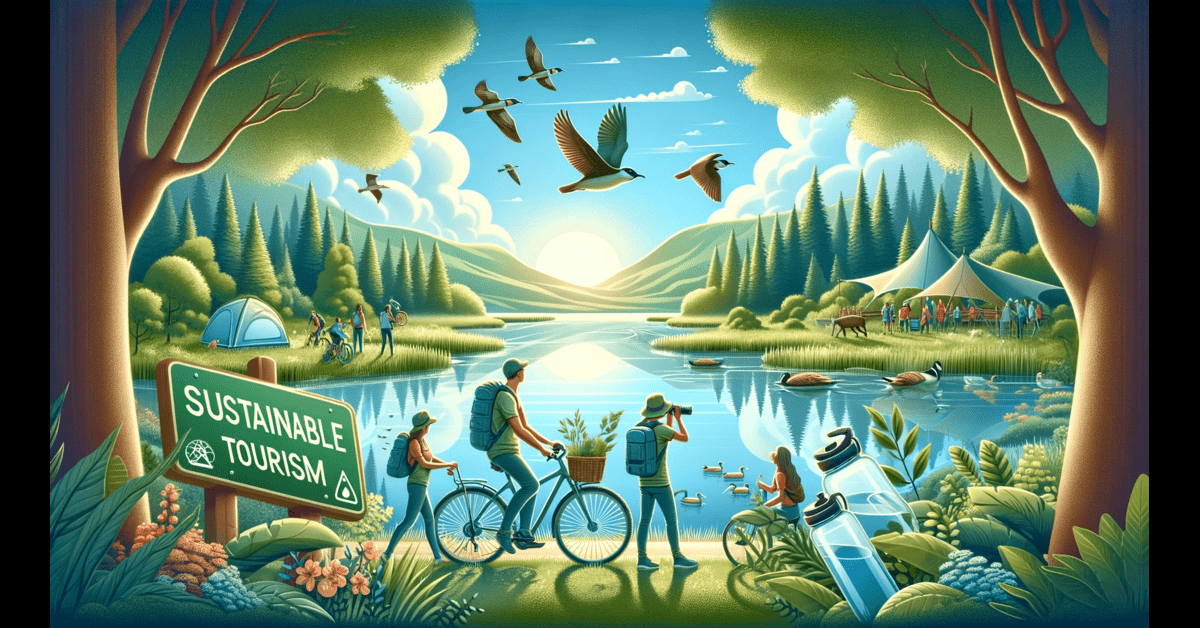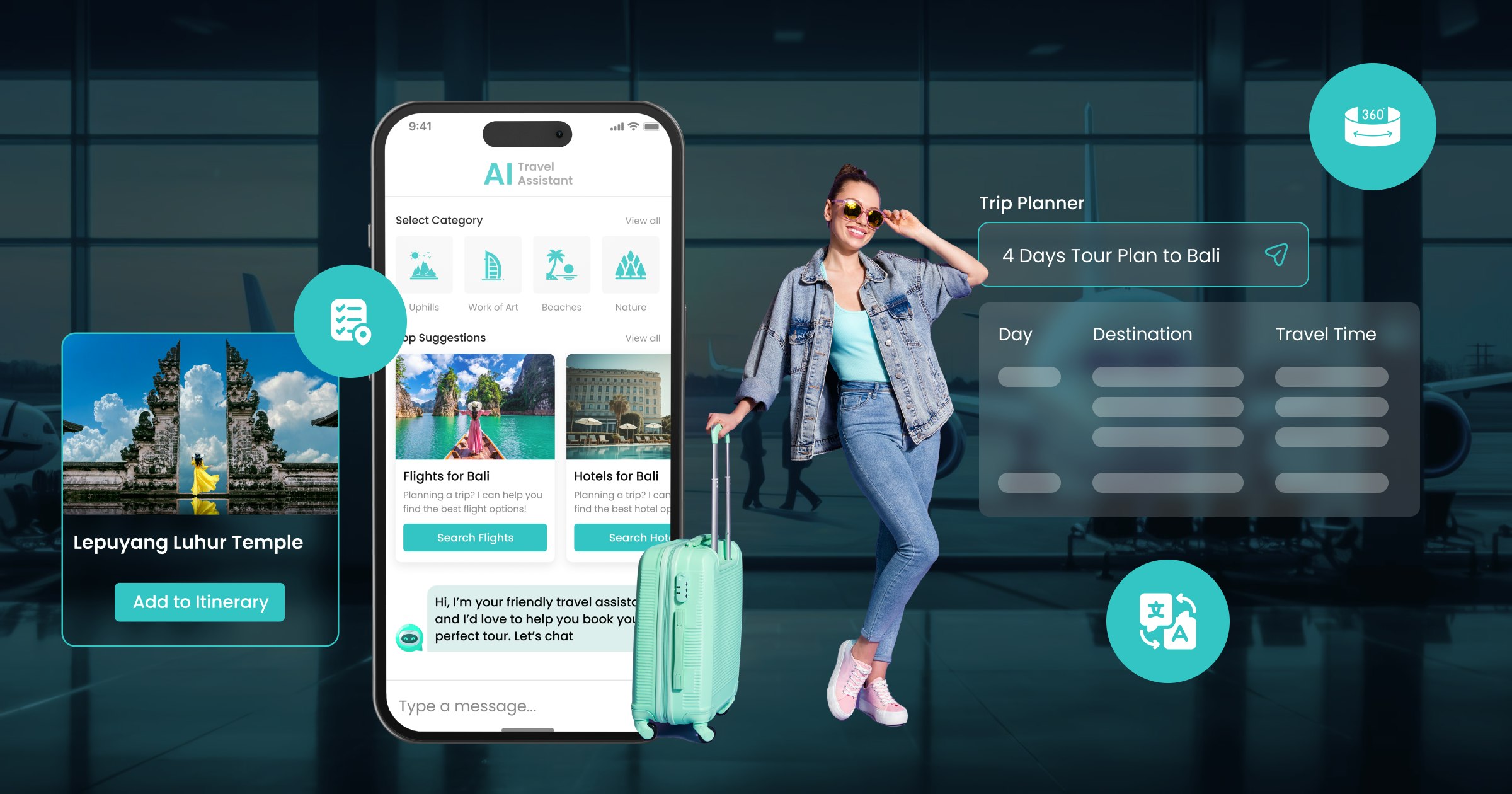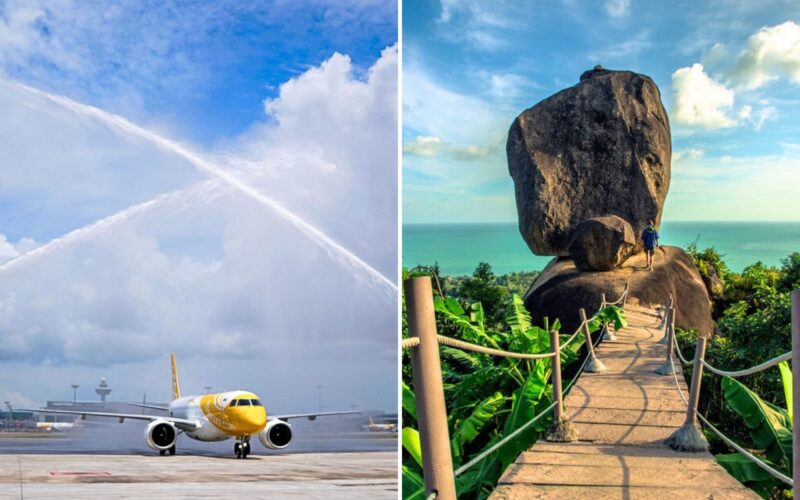
As we approach 2025, the travel landscape is set to experience transformative changes that will shape the way we explore the world. Booking.com, one of the largest and most influential travel platforms globally, has forecasted nine key trends that will define the future of travel in the coming year. These predictions draw from extensive consumer data, industry insights, and emerging technological advancements, offering a glimpse into what travelers in the US and beyond can expect as they plan their trips.
In this article, we’ll delve into the nine major trends that Booking.com anticipates will influence travel in 2025, and explore how these shifts will impact travelers, hospitality providers, and the travel industry as a whole.

1. Eco-Conscious Travel: Prioritizing Sustainability
As environmental concerns become more pressing, sustainability will continue to be a top priority for travelers in 2025. Booking.com forecasts that eco-conscious travel will see significant growth, with a rising number of US travelers seeking out greener options. This trend will manifest in various ways, from choosing eco-friendly accommodations and transportation to supporting sustainable tourism initiatives.
Many travelers are already factoring sustainability into their decision-making process, and by 2025, this is expected to be more than just a niche preference. Booking.com’s research indicates that a large percentage of travelers will prioritize staying at eco-certified hotels and opting for destinations that prioritize conservation and environmental preservation.
The platform will likely expand its offerings by partnering with more sustainable travel providers and highlighting green options on its platform, making it easier for travelers to make informed decisions.

2. Digital Nomadism: Blending Work and Leisure
The concept of remote work, which gained momentum during the pandemic, is set to remain a dominant force in 2025. Booking.com predicts a rise in “digital nomads” — individuals who combine work and travel, often spending extended periods in different destinations while continuing to work remotely.
As a result, demand for longer stays in accommodations that offer both comfort and reliable workspaces will rise. In the US, cities like Austin, Denver, and Miami are already popular with digital nomads, but in 2025, more rural and off-the-beaten-path locations are expected to attract these travelers.
Booking.com is poised to support this trend by offering specialized accommodations, including co-living spaces, serviced apartments, and work-friendly environments, making it easier for digital nomads to maintain their work-life balance while on the road.

3. Hyper-Personalization: Tailored Travel Experiences
Personalization is no longer a luxury—it’s a necessity. By 2025, US travelers will expect their travel experiences to be tailored specifically to their preferences. Booking.com’s advanced data-driven algorithms and AI technology will play a crucial role in this shift, enabling the platform to offer hyper-personalized recommendations based on travelers’ previous searches, reviews, and preferences.
Whether it’s suggesting a boutique hotel that aligns with a traveler’s taste or offering a curated list of activities based on their interests, personalization will drive customer satisfaction. Booking.com is expected to continue refining its technology to create seamless, customized experiences that cater to individual travelers’ needs.
Travelers will also see more personalized itineraries that consider factors such as dietary preferences, travel style (adventure, relaxation, or cultural immersion), and even wellness goals, making their trips more fulfilling and enjoyable.

4. Rise of AI and Automation in Travel Planning
Artificial intelligence and automation will play an increasingly significant role in travel planning by 2025. Booking.com predicts that AI-powered tools will revolutionize the way US travelers search for and book accommodations, flights, and activities.
From chatbots providing 24/7 customer service to AI-driven itinerary builders, these technologies will streamline the booking process, offering travelers greater convenience and reducing time spent on planning. For instance, travelers may use AI tools to receive instant suggestions on the best travel times, routes, and prices based on real-time data and past behavior.
In addition, automated customer service will improve the post-booking experience. Virtual assistants will be able to handle cancellations, rescheduling, and other changes, allowing travelers to navigate disruptions with ease.

5. Exploration of Secondary Cities and Off-the-Beaten-Path Destinations
One of the biggest shifts predicted by Booking.com for 2025 is the growing interest in secondary cities and lesser-known destinations. As travelers seek out more unique, authentic experiences, they will move away from overcrowded tourist hotspots in favor of quieter, less commercialized locales.
In the US, cities like Portland (Maine), Asheville, and Tucson are expected to see an influx of travelers looking for off-the-beaten-path experiences. These destinations offer rich cultural experiences, natural beauty, and a more relaxed pace of life compared to larger, more tourist-heavy cities.
This trend will be driven in part by travelers’ desire for sustainable tourism, as visiting less crowded destinations helps to reduce the environmental impact of mass tourism. Booking.com will likely focus on expanding its listings in these emerging destinations and promoting them to travelers looking for new and exciting places to explore.

6. Wellness Travel: A Focus on Mental and Physical Health
Wellness travel, which prioritizes health and well-being, will be a major focus in 2025. US travelers are increasingly seeking experiences that allow them to recharge mentally and physically, whether through yoga retreats, spa vacations, or outdoor adventures that promote mindfulness and stress relief.
Booking.com’s data indicates a rising demand for wellness-focused accommodations and activities, such as luxury spas, hiking excursions, and meditation retreats. The platform will cater to this trend by offering curated wellness travel options that address the growing need for relaxation and rejuvenation.
Incorporating wellness elements into vacations—whether it’s through immersive nature experiences, digital detoxes, or fitness-focused itineraries—will be an essential part of travel planning for many Americans in 2025.

7. Tech-Enhanced Travel: The Role of Virtual Reality and Augmented Reality
Virtual reality (VR) and augmented reality (AR) technologies will significantly influence the travel experience by 2025. Booking.com predicts that these technologies will be integrated into the pre-travel phase, allowing travelers to “test-drive” destinations, hotels, and experiences before booking.
For instance, travelers will be able to take virtual tours of hotels or preview activities like scuba diving or city tours via VR. This immersive experience will give travelers a better sense of what to expect, helping them make more informed decisions.
AR, on the other hand, will enhance on-the-ground experiences. From interactive city guides to AR-enhanced museum tours, travelers will be able to use their smartphones or wearable devices to access rich, contextual information that enhances their trip.
Booking.com will likely invest in partnerships with tech companies to offer these innovative features, giving travelers a futuristic and interactive way to plan and experience their trips.

8. Solo Travel: Empowerment and Adventure
Solo travel is set to continue its upward trend in 2025, with more Americans embracing the freedom and empowerment that comes with exploring the world alone. Booking.com predicts that solo travelers will seek out both adventure and self-discovery, leading to a surge in bookings for experiences tailored to individual travelers.
Women, in particular, are expected to drive this trend, as more female travelers feel empowered to explore new destinations on their own. The platform is likely to expand its range of solo travel-friendly options, including accommodations that cater to safety concerns and solo traveler-specific experiences such as group tours designed for individuals traveling alone.
With enhanced safety features, reviews from solo travelers, and curated lists of destinations known for being solo-friendly, Booking.com will provide the tools and resources needed to make solo travel both safe and rewarding.
9. Multi-Generational and Group Travel: Family Reunions and Friendscations
The pandemic may have temporarily paused large group travel, but by 2025, multi-generational and group vacations are expected to make a strong comeback. Booking.com forecasts that US families and friends will prioritize spending quality time together, opting for larger accommodations like villas or vacation homes that can accommodate entire groups.
Family reunions, destination weddings, and “friendscations” will be key drivers of this trend. Travelers will seek out destinations and accommodations that cater to diverse group needs, including multi-bedroom suites, private rentals, and group activities.
Booking.com will likely respond by highlighting properties that are well-suited for group travel, offering flexible booking options, and promoting group-friendly destinations across the US and abroad.
Conclusion
The future of travel in 2025, as forecasted by Booking.com, is both exciting and dynamic. From eco-conscious choices to tech-enhanced experiences, travelers will have more options than ever before to create meaningful, personalized trips. As these nine trends take shape, the travel industry will need to adapt to meet the evolving demands of US travelers, who seek convenience, sustainability, and unique experiences.
Booking.com, with its vast platform and commitment to innovation, is well-positioned to lead the charge in shaping this new era of travel. Whether you’re a digital nomad, a wellness traveler, or someone planning a family reunion, 2025 will offer a wealth of opportunities to explore the world in ways that are more personalized, sustainable, and enriching than ever before.


